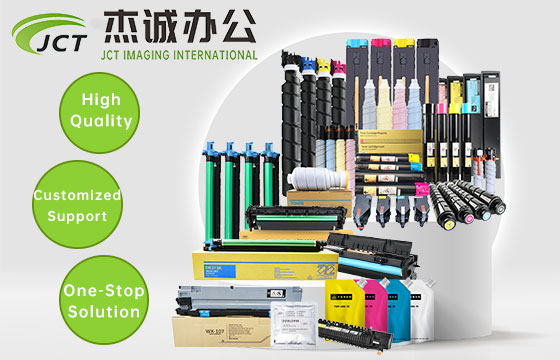Toner Conference 2013: Marketing/Legal Wrap-Up
In her Keynote Address, Ms. Tricia Judge, Executive Director of the International Imaging Technology Council (I-ITC) showed us how “Times Have Changed.”The toner industry has matured to a point where more funds are possibly being spent on legal battles and court actions than on technical development. At the same time, the influx of counterfeit, compatible, and clone cartridges has threatened all Players: the original equipment makers (OEMs) and aftermarket remanufacturers alike.
What has also changed is that OEM and aftermarket Players have finally found some common ground now that each sees their business threatened. The OEMs depend upon a 6 to 12 month interval, once a new printer is introduced, when the field is essentially free of competitive cartridges, the lucrative legacy of each new machine. Normally, a maximum earnings period, this hiatus no longer exists, as counterfeiters immediately pounce on most newly-minted cartridges, offering typically low-quality products at a deep discount.
For the aftermarket Players, price competition against counterfeits, clones, or compatibles is fierce. In the words of MSE’s Luke Goldberg, it’s a bloody “red ocean” market with Players literally devouring each other on price.
What’s even more insidious is that spent clones and spent counterfeits end up in the same pool of cores as spent OEM originals. Remanufacturing these illegal products could prove to be a bear trap for the legitimate recharger.
The result is that the Imaging Supplies Coalition (ISC) and the I-ITC) are sharing the same podium these days explaining the damage these low-price, low-quality, often patent infringing, cartridges are doing to the industry. They are warning of the risk in patent vioation for anyone recharging a spent clone, compatible or counterfeit. It is an educational process, to say the least, in defining these three types and even more difficult, identifying their differences.
In the final Session 16, Dr. Bhima Vijayendran or Redwood Innovation Partners, LLC discussed the emerging field of bioproducts and how these are impacting “over half a trillion pounds of polymer and plastic products” consumed globally each year. In the discussion following his talk and in comments heard offline, the question most often repeated was “Why have biotoners not been warmly accepted by markets in the USA and Europe?”
The answer is simple: Price. If the various biotoners introduced by Future Graphics, SoyPrint and others had been priced at the same level as aftermarket toners, most believe they would have been rapidly and warmly accepted. However, they were priced above petro-based aftermarket toners and end-users were unwilling to pay the difference.
One can only predict that biotoners will take a significant share of the toner market, if and when pricing is comparable to petro-based toners. Bottom line: Yes, biotoner, the word and the concept both have appeal, but is the end user willing to pay extra to decrease our dependence on foreign oil. No!
On the legal side, we heard from attorney Edward O’Connor, Esq. on the issues of the doctrine of permissible repair and the current status of patent exhaustion upon first sale, also known as the first sale rule. O’Connor is the father of the doctrine of permissible repair when as attorney for the defendant in HP v Repeat-O-Type Stencil Manufacturing Corp. (circa.1997) he distinguished between permissible repair and impermissible reconstruction, essentially paving the way for the cartridge recharging and remanufacturing industry to move forward without fear of patent violation.
O’Connor believes the stage is set for the Jazz Photo ruling to be overturned. It was this fuzzy conclusion that left unclear whether or not the first sale rule applies to initial sales made in countries other than the United States. Overturning Jazz Photo would be a major step forward for every recharger in the USA and elsewhere as it would enable hundreds of thousands of spent Ink jet and toner cartridges to be remanufactured.
Regarding Jazz Photo, my guess is that the first sale rule will be overturned by 2014, stiff penalties will be imposed upon those trading in cloned and counterfeit cartridges, including serious jail time, and rechargers will thus be unshackled going forward.
BY Art Diamond, Senior Consulting Editor of Recycling Times


Leave a Comment
Want to join the discussion?Feel free to contribute!